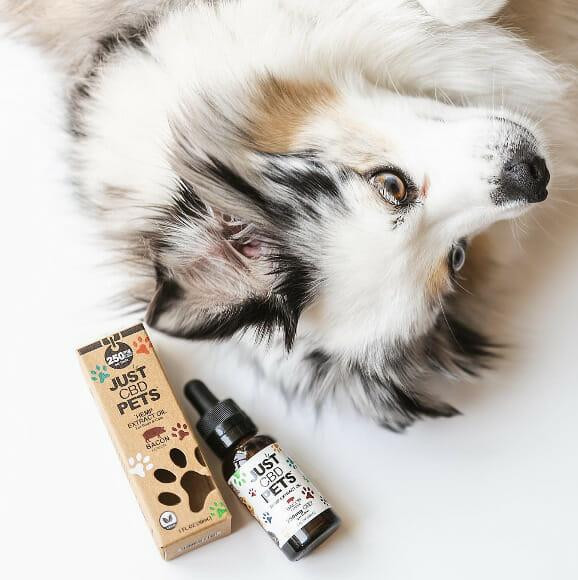Introduction:-
In recent years, the use of Cannabidiol (CBD) has surged in popularity, not only for humans but also for our beloved furry companions. Pet owners are turning to CBD as a natural alternative to support their pets' well-being, addressing issues such as anxiety, pain, and inflammation. This article delves into the world of CBD for pets, exploring its potential benefits and considerations for responsible usage.
Understanding CBD for Pets:-
CBD is a non-psychoactive compound derived from the cannabis plant. Unlike its counterpart, THC, CBD does not produce a “high” effect. Instead, it interacts with the endocannabinoid system, a complex network in the bodies of humans and animals that regulates various physiological processes.
Benefits of CBD for Pets:-
Anxiety and Stress Relief: Just like humans, pets can experience anxiety and stress. Common triggers include loud noises, separation anxiety, or changes in their environment. CBD has shown promise in promoting relaxation by interacting with receptors in the brain responsible for mood regulation.
Pain Management: Aging pets or those dealing with chronic conditions may experience pain and inflammation. CBD's anti-inflammatory properties can help alleviate discomfort and improve mobility, making it a valuable option for pets dealing with arthritis or other painful conditions.
Epilepsy and Seizures: CBD has gained recognition for its potential anti-seizure properties. Some pet owners have reported a reduction in the frequency and severity of seizures in their animals after incorporating CBD into their treatment plans.
Digestive Health: CBD may have a positive impact on digestive health in pets by regulating appetite, reducing nausea, and easing gastrointestinal issues. This makes it beneficial for pets struggling with conditions such as irritable bowel syndrome (IBS) or loss of appetite.
Considerations for Responsible Use:-
Consultation with a Veterinarian: Before introducing CBD into a pet's routine, it's crucial to consult with a veterinarian. They can provide guidance on appropriate dosage, potential interactions with other medications, and ensure that CBD is a suitable option for the specific needs of the pet.
Quality Matters: Not all CBD products are created equal. Look for products specifically formulated for pets, ensuring they contain high-quality, organic CBD and are free from harmful additives. Reading product reviews and choosing reputable brands can help ensure the product's safety and effectiveness.
Start Low, Go Slow: When introducing CBD to a pet, it's wise to start with a low dosage and gradually increase as needed. Monitoring the pet's response and consulting with a veterinarian throughout the process can help tailor the dosage to the individual animal.
As pet owners increasingly seek natural alternatives to support their pets' health, CBD has emerged as a promising option. While more research is needed to fully understand its long-term effects, many pet owners report positive outcomes, with their furry friends experiencing relief from various conditions. With careful consideration, consultation with veterinarians, and the use of high-quality products, CBD for pets may offer a pawsitively calm solution to common health concerns.
In recent years, the use of Cannabidiol (CBD) has surged in popularity, not only for humans but also for our beloved furry companions. Pet owners are turning to CBD as a natural alternative to support their pets' well-being, addressing issues such as anxiety, pain, and inflammation. This article delves into the world of CBD for pets, exploring its potential benefits and considerations for responsible usage.
Understanding CBD for Pets:-
CBD is a non-psychoactive compound derived from the cannabis plant. Unlike its counterpart, THC, CBD does not produce a “high” effect. Instead, it interacts with the endocannabinoid system, a complex network in the bodies of humans and animals that regulates various physiological processes.
Benefits of CBD for Pets:-
Anxiety and Stress Relief: Just like humans, pets can experience anxiety and stress. Common triggers include loud noises, separation anxiety, or changes in their environment. CBD has shown promise in promoting relaxation by interacting with receptors in the brain responsible for mood regulation.
Pain Management: Aging pets or those dealing with chronic conditions may experience pain and inflammation. CBD's anti-inflammatory properties can help alleviate discomfort and improve mobility, making it a valuable option for pets dealing with arthritis or other painful conditions.
Epilepsy and Seizures:- CBD has gained recognition for its potential anti-seizure properties. Some pet owners have reported a reduction in the frequency and severity of seizures in their animals after incorporating CBD into their treatment plans.
Digestive Health: CBD may have a positive impact on digestive health in pets by regulating appetite, reducing nausea, and easing gastrointestinal issues. This makes it beneficial for pets struggling with conditions such as irritable bowel syndrome (IBS) or loss of appetite.
Considerations for Responsible Use:
Consultation with a Veterinarian: Before introducing CBD into a pet's routine, it's crucial to consult with a veterinarian. They can provide guidance on appropriate dosage, potential interactions with other medications, and ensure that CBD is a suitable option for the specific needs of the pet.
Quality Matters: Not all CBD products are created equal. Look for products specifically formulated for pets, ensuring they contain high-quality, organic CBD oil for pets and are free from harmful additives. Reading product reviews and choosing reputable brands can help ensure the product's safety and effectiveness.
Start Low, Go Slow: When introducing CBD to a pet, it's wise to start with a low dosage and gradually increase as needed. Monitoring the pet's response and consulting with a veterinarian throughout the process can help tailor the dosage to the individual animal.
As pet owners increasingly seek natural alternatives to support their pets' health, CBD has emerged as a promising option. While more research is needed to fully understand its long-term effects, many pet owners report positive outcomes, with their furry friends experiencing relief from various conditions. With careful consideration, consultation with veterinarians, and the use of high-quality products, CBD for pets may offer a pawsitively calm solution to common health concerns.
For more info visit our website:-
dog cbd treats
dog cbd oil
cbd pet
pet cbd





